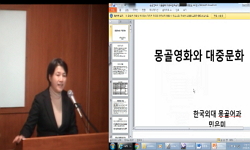Word-of-mouth(WOM) is an important element in success or failure of product or service. Especially, word-of-mouth of a newly-released film is critical element in good box office, because it is short in life cycle and experience goods of single round. ...
http://chineseinput.net/에서 pinyin(병음)방식으로 중국어를 변환할 수 있습니다.
변환된 중국어를 복사하여 사용하시면 됩니다.
- 中文 을 입력하시려면 zhongwen을 입력하시고 space를누르시면됩니다.
- 北京 을 입력하시려면 beijing을 입력하시고 space를 누르시면 됩니다.
소비자의 태도 변화에서 추론된 다수의 영향: 인지적 종결욕구의 관점
한글로보기https://www.riss.kr/link?id=G3791502
- 저자
-
발행기관
-
-
발행연도
2009년
-
작성언어
Korean
-
주제어
영화 ; Need for Cognitive Closure ; Inconsistency of Attitude ; Attitude Change ; Inferred Majority ; 의사결정 ; 종결욕구 ; 관여 ; 태도변화 ; 추론된 다수
-
자료형태
한국연구재단(NRF)
-
0
상세조회 -
0
다운로드
부가정보
다국어 초록 (Multilingual Abstract)
In order to accomplish the purpose, this study conducted experiment with 215 student subject. The experiment process of the study as follows. This study was conducted in two phases. In the first phase, participants' initial attitudes were measured on four films that have been in run at the time the study was conducted after they read synopses and saw trailers of films. But most part of participants didn't know the film almost. In addition, participants' willingness to consider their classmates' attitudes, emphasis on one's own opinions, and involvement were measured. In the second phase, the participants made an answer to questions of NFC firstly, were informed about fake and manipulated majority attitude based on the first phase, and were assessed on attitudes of the films again. Among the four films, two films were marked with the fake majority attitude approximately 1.5 standard deviation lower than the real average attitude and two films were marked with the fake majority attitude approximately 1.5 standard deviation higher than the real average attitude.
The result as follows. Firstly, if there is discrepancy between majority attitudes and one's own attitude toward a film, most part of participants' initial attitudes changed with majority attitudes. This result is something identified through previous studies in the many fields. Second, this attitude change is explained by NFC. In other words, people with low NFC changed much more than people with high NFC.
This study has several implications. Theoretically, many studies conducted how NFC served as moderator in a contingency. However, in lacking of studies about influence of inferred majority, this study established that NFC serve as an explanatory variable in case that inferred fake majority change an individual's attitude. Second, this study enhanced the understanding on how unspecified majority attitudes is accepted a consumer in WOM communication.
They know that long run of a film depends on WOM at the time of release. On this situation, this study found psychological mechanism of WOM importance in film industry. In addition, the study has implication of orientation that a film marketer need to communicate to consumer of what characteristics. People with low NFC in trait might be centered on primary WOM communication. In addition, other researchers conceptualize NFC in state. This means that a certain situation make higher or lower NFC regardless of that as trait. For example, people have experience with high NFC in situation of time pressure or fatigue. Therefore, in film marketing communication in order to enhancing evaluation and viewing more positively, intentional manipulation of NFC might amplify effects of WOM.
This study has several limitation. First, university students was only participants of the study, so this give the limitation in interpretation. Second, this study ignored that NFC might conceptualize as a state variable. Third is acontextual. Fourth, like netizen, further study need to explore other kind of majority.
Word-of-mouth(WOM) is an important element in success or failure of product or service. Especially, word-of-mouth of a newly-released film is critical element in good box office, because it is short in life cycle and experience goods of single round. However, we knew effects of WOM but don't know its psychological mechanism well yet. Therefore, this study investigate attitude change toward a film according to cognitive need for closure(NFC) that is studied as a important variable in decision-making process, when there is a discrepancy between an individual's attitude and other's attitude. In addition, enjoying a film is a popular kind of leisure activities, and people like different leisure activities with individual's different interesting. So, this study investigated how attitude of inferred majority have an influence an individual's attitude change according to NFC with involvement.
In order to accomplish the purpose, this study conducted experiment with 215 student subject. The experiment process of the study as follows. This study was conducted in two phases. In the first phase, participants' initial attitudes were measured on four films that have been in run at the time the study was conducted after they read synopses and saw trailers of films. But most part of participants didn't know the film almost. In addition, participants' willingness to consider their classmates' attitudes, emphasis on one's own opinions, and involvement were measured. In the second phase, the participants made an answer to questions of NFC firstly, were informed about fake and manipulated majority attitude based on the first phase, and were assessed on attitudes of the films again. Among the four films, two films were marked with the fake majority attitude approximately 1.5 standard deviation lower than the real average attitude and two films were marked with the fake majority attitude approximately 1.5 standard deviation higher than the real average attitude.
The result as follows. Firstly, if there is discrepancy between majority attitudes and one's own attitude toward a film, most part of participants' initial attitudes changed with majority attitudes. This result is something identified through previous studies in the many fields. Second, this attitude change is explained by NFC. In other words, people with low NFC changed much more than people with high NFC.
This study has several implications. Theoretically, many studies conducted how NFC served as moderator in a contingency. However, in lacking of studies about influence of inferred majority, this study established that NFC serve as an explanatory variable in case that inferred fake majority change an individual's attitude. Second, this study enhanced the understanding on how unspecified majority attitudes is accepted a consumer in WOM communication.
They know that long run of a film depends on WOM at the time of release. On this situation, this study found psychological mechanism of WOM importance in film industry. In addition, the study has implication of orientation that a film marketer need to communicate to consumer of what characteristics. People with low NFC in trait might be centered on primary WOM communication. In addition, other researchers conceptualize NFC in state. This means that a certain situation make higher or lower NFC regardless of that as trait. For example, people have experience with high NFC in situation of time pressure or fatigue. Therefore, in film marketing communication in order to enhancing evaluation and viewing more positively, intentional manipulation of NFC might amplify effects of WOM.
This study has several limitation. First, university students was only participants of the study, so this give the limitation in interpretation. Second, this study ignored that NFC might conceptualize as a state variable. Third is acontextual. Fourth, like netizen, further study need to explore other kind of majority.
국문 초록 (Abstract)
이러한 목적을 달성하기 위해 대학생 215명을 대상으로 실험을 진행하였다. 실험 진행 과정은 다음과 같이 요약된다. 연구목적을 달성을 위한 자료 수집은 두 단계로 나누어 진행했다. 단계1에서, 응답자들은 4개 실제 상영된 적이 있었던(그러나 응답자 대부분이 인지하고 있지 못했다) 4개 영화의 시놉시스를 읽고 예고편영상을 본 후 이에 대한 태도 질문에 응답했으며, 더불어 태도 형성히 자신의 생각의 중요성 및 타인의 의견의 고려 정도와 영화에 대한 관여 수준에도 응답하였다. 단계2에서, 응답자들은 먼저 종결욕구에 응답하였으며 단계1에서 얻은 참여자들의 영화에 대한 태도 정보를 바탕으로 조작된 다수의 태도 수준을 알려 주고 다시 평가하였다. 두 영화에 대해서는 영화 평가 문항의 실제 평균보다 1.5표준편차만큼 더했으며, 두 영화에 대해서는 1.5표준편차만큼 뺐다.
연구결과는 다음과 같이 몇 가지로 요약할 수 있다. 첫째, 어떤 대상에 대한 다수의 태도와 자신의 태도가 다를 경우, 대다수의 사람들은 자신의 초기 의견을 포기하고 다수의 의견을 따른다는 것이다. 이것은 이미 다양한 분야의 선행 연구를 통해 확인된 것이다. 둘째, 이러한 태도 변화는 본 연구의 초점인 종결욕구에 의해 설명될 수 있다는 것이다. 즉, 종결욕구가 낮은 사람들이 높은 사람들보다 다수의 태도를 따라서 자신의 태도를 바꾸었다는 것이다.
이러한 연구결과를 바탕으로 본 연구는 다음과 같은 몇 가지 시사점을 가질 것이다. 이론적으로 볼 때, 첫째, 국내외에서 종결욕구가 어떤 조건에서 종결욕구가 조절변인(moderator)으로 기능하는지에 대한 많은 연구가 이루어졌지만, 추론된 다수의 영향을 받아 개인의 의견이 변할 때 종결욕구가 충분히 하나의 설명변인이 될 수 있음을 보여주었다. 둘째, 구전 커뮤니케이션에서 불특정 다수의 의견이 소비자에게 어떻게 수용되는가에 대한 이해를 증진시켰다는 점이다.
영화의 흥행 성패는 개봉 전후의 입소문이 절대적이라는 것은 주지의 사실이다. 이런 상황에서 본 연구는 영화 산업에서 왜 입소문, 즉 구전이 중요한 지에 대한 심리적 기제를 알려준다는 것이다. 또한 영화 마케팅에서 특히 어떤 특성을 가진 사람들에게 초기 입소문을 전달할 필요가 있는지에 대한 방향성을 제시한다는 시사점을 가질 것이다. 본 연구는 특질적으로(trait) 종결욕구가 낮은 사람들이 일차적인 입소문의 초점을 될 수 있음을 알려 준다. 그런데, 다른 한편으로 종결욕구는 상태적으로(state) 개념화될 수 있는 변인이다.
제품이나 서비스의 성패에서 구전(입소문)은 중요한 요소이다. 특히 생명주기가 짧은데다 1회성 체험의 대상인 영화에서 초기 인지도 및 상영기간 동안의 입소문은 흥행의 주요 요소이다. ...
제품이나 서비스의 성패에서 구전(입소문)은 중요한 요소이다. 특히 생명주기가 짧은데다 1회성 체험의 대상인 영화에서 초기 인지도 및 상영기간 동안의 입소문은 흥행의 주요 요소이다. 그러나 그동안 입소문의 효과에 대해서는 밝혀졌지만, 그것이 어떠한 심리적 기제에 의해 이루어지는지에 대한 연구는 미흡한 편이다. 이에 본 연구는 의사결정 과정에서 작용하는 주요 변수로 언급되는 인지적 종결욕구(cognitive need for closure)에 따라서 영화에 대한 초기의 태도가 다수의 타인에 의해 어떻게 달라질 수 있는지 알아보고자 하였다. 더불어 영화는 주요 여가활동 중 하나인데, 개인의 지속적 관심에 따라 선호되는 여가활동도 다르다. 따라서, 종결욕구와 함께 관여도(involvement)에 따라 추론된 다수의 태도가 개인의 태도변화에 어떻게 작용하는지 알아보았다.
이러한 목적을 달성하기 위해 대학생 215명을 대상으로 실험을 진행하였다. 실험 진행 과정은 다음과 같이 요약된다. 연구목적을 달성을 위한 자료 수집은 두 단계로 나누어 진행했다. 단계1에서, 응답자들은 4개 실제 상영된 적이 있었던(그러나 응답자 대부분이 인지하고 있지 못했다) 4개 영화의 시놉시스를 읽고 예고편영상을 본 후 이에 대한 태도 질문에 응답했으며, 더불어 태도 형성히 자신의 생각의 중요성 및 타인의 의견의 고려 정도와 영화에 대한 관여 수준에도 응답하였다. 단계2에서, 응답자들은 먼저 종결욕구에 응답하였으며 단계1에서 얻은 참여자들의 영화에 대한 태도 정보를 바탕으로 조작된 다수의 태도 수준을 알려 주고 다시 평가하였다. 두 영화에 대해서는 영화 평가 문항의 실제 평균보다 1.5표준편차만큼 더했으며, 두 영화에 대해서는 1.5표준편차만큼 뺐다.
연구결과는 다음과 같이 몇 가지로 요약할 수 있다. 첫째, 어떤 대상에 대한 다수의 태도와 자신의 태도가 다를 경우, 대다수의 사람들은 자신의 초기 의견을 포기하고 다수의 의견을 따른다는 것이다. 이것은 이미 다양한 분야의 선행 연구를 통해 확인된 것이다. 둘째, 이러한 태도 변화는 본 연구의 초점인 종결욕구에 의해 설명될 수 있다는 것이다. 즉, 종결욕구가 낮은 사람들이 높은 사람들보다 다수의 태도를 따라서 자신의 태도를 바꾸었다는 것이다.
이러한 연구결과를 바탕으로 본 연구는 다음과 같은 몇 가지 시사점을 가질 것이다. 이론적으로 볼 때, 첫째, 국내외에서 종결욕구가 어떤 조건에서 종결욕구가 조절변인(moderator)으로 기능하는지에 대한 많은 연구가 이루어졌지만, 추론된 다수의 영향을 받아 개인의 의견이 변할 때 종결욕구가 충분히 하나의 설명변인이 될 수 있음을 보여주었다. 둘째, 구전 커뮤니케이션에서 불특정 다수의 의견이 소비자에게 어떻게 수용되는가에 대한 이해를 증진시켰다는 점이다.
영화의 흥행 성패는 개봉 전후의 입소문이 절대적이라는 것은 주지의 사실이다. 이런 상황에서 본 연구는 영화 산업에서 왜 입소문, 즉 구전이 중요한 지에 대한 심리적 기제를 알려준다는 것이다. 또한 영화 마케팅에서 특히 어떤 특성을 가진 사람들에게 초기 입소문을 전달할 필요가 있는지에 대한 방향성을 제시한다는 시사점을 가질 것이다. 본 연구는 특질적으로(trait) 종결욕구가 낮은 사람들이 일차적인 입소문의 초점을 될 수 있음을 알려 준다. 그런데, 다른 한편으로 종결욕구는 상태적으로(state) 개념화될 수 있는 변인이다.











